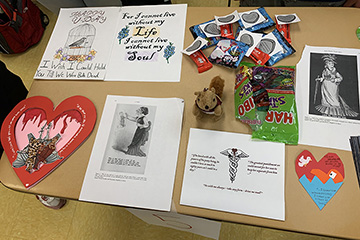Michigan PBB Disaster of 1973 revisited today
New book highlights continued impact from the PBB Disaster
In 1973, a chemical company in St. Louis, Michigan shipped a flame retardant polybrominated biphenyl (or PBB) that was mislabeled as a nutritional supplement to a livestock feed mill, causing it to get mixed into animal feed. This disaster exposed an estimated 8.5 million Michiganders to PBB-contaminated farm products, and its impact is still felt today.
Brittany Fremion, a CMU history professor, and Ben Peterson, an Alma College lecturer of political science and history, are co-editors of a new book “The PBB Disaster at 50: Reflections, Critical Lessons, and a Path Forward.” The book’s goal is to inform everyone of the disaster and its continued real-world impacts, from the Michiganders who grew up in the 70’s, to the doctors of today.
The book features essays of multiple authors with accounts from individuals at the forefront of the PBB disaster, like farm families. Essays also outline the health impacts that continue to be felt from PBB exposure, like increased thyroid problems and rates of cancer that Medical problems associated with PBB are passed down from one generation to the next, bringing a historical problem into the present.
Fremion and Peterson are hoping to eventually make the book available at no cost. To promote the book, Peterson and Fremion will be part of the CMU Clarke Historical Library's speaker series on September 9th and will freely distribute copies there.
This story is brought to you by the Office of Research & Graduate Studies.




